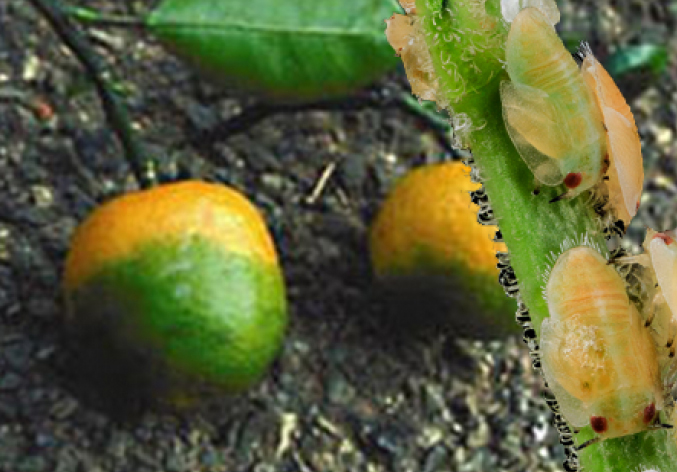USDA Invests $13.6 million in citrus greening research
The U.S. Department of Agriculture’s (USDA) National Institute of Food and Agriculture (NIFA) today announced four grants totaling more than $13.6 million to combat a scourge on the nation’s citrus industry, citrus greening disease, aka Huanglongbing.

The U.S. Department of Agriculture’s (USDA) National Institute of Food and Agriculture (NIFA) today announced four grants totaling more than $13.6 million to combat a scourge on the nation’s citrus industry, citrus greening disease, aka Huanglongbing. The funding is made possible through NIFA’s Specialty Crop Research Initiative (SCRI) Citrus Disease Research and Extension Program, authorized by the 2014 Farm Bill.
“The economic impact of citrus greening disease is measured in the billions,” said NIFA Director Sonny Ramaswamy. “NIFA investments in research are critical measures to help the citrus industry survive and thrive, and to encourage growers to replant with confidence.”
Huanglongbing (HLB) is currently the most devastating citrus disease worldwide. HLB was first detected in Florida in 2005 and has since affected all of Florida’s citrus-producing areas leading to a 75 percent decline in Florida’s $9 billion citrus industry. Fifteen U.S. States or territories are under full or partial quarantine due to the presence of the Asian citrus psyllid (ACP), a vector for HLB.
Since 2009, USDA has invested more than $400 million to address citrus greening, including more than $57 million through the Citrus Disease Research and Extension Program since 2014. Awards for grant applications submitted in FY 2016 include:
- Clemson University, Clemson, South Carolina, $4,274,523
- Regents of the University of California, Riverside, California, $5,112,000
- Iowa State University, Ames, Iowa, $2,476,099
- USDA Agricultural Research Service (ARS), Athens, Georgia, $1,821,197
Funded projects include Clemson University researchers using naturally HLB-resistant citrus trees to develop new resistant varieties using the CRISPR-Cas9 genome editing tool. The Regents of the University of California project will design and identify HLB bactericides based on both natural and nanotechnology approaches. Researchers at Iowa State University will investigate the use of sustainable, naturally occurring soil bacteria to control ACP. The ARS project will identify and assess the effectiveness and economic viability of chemotherapy treatment options.









